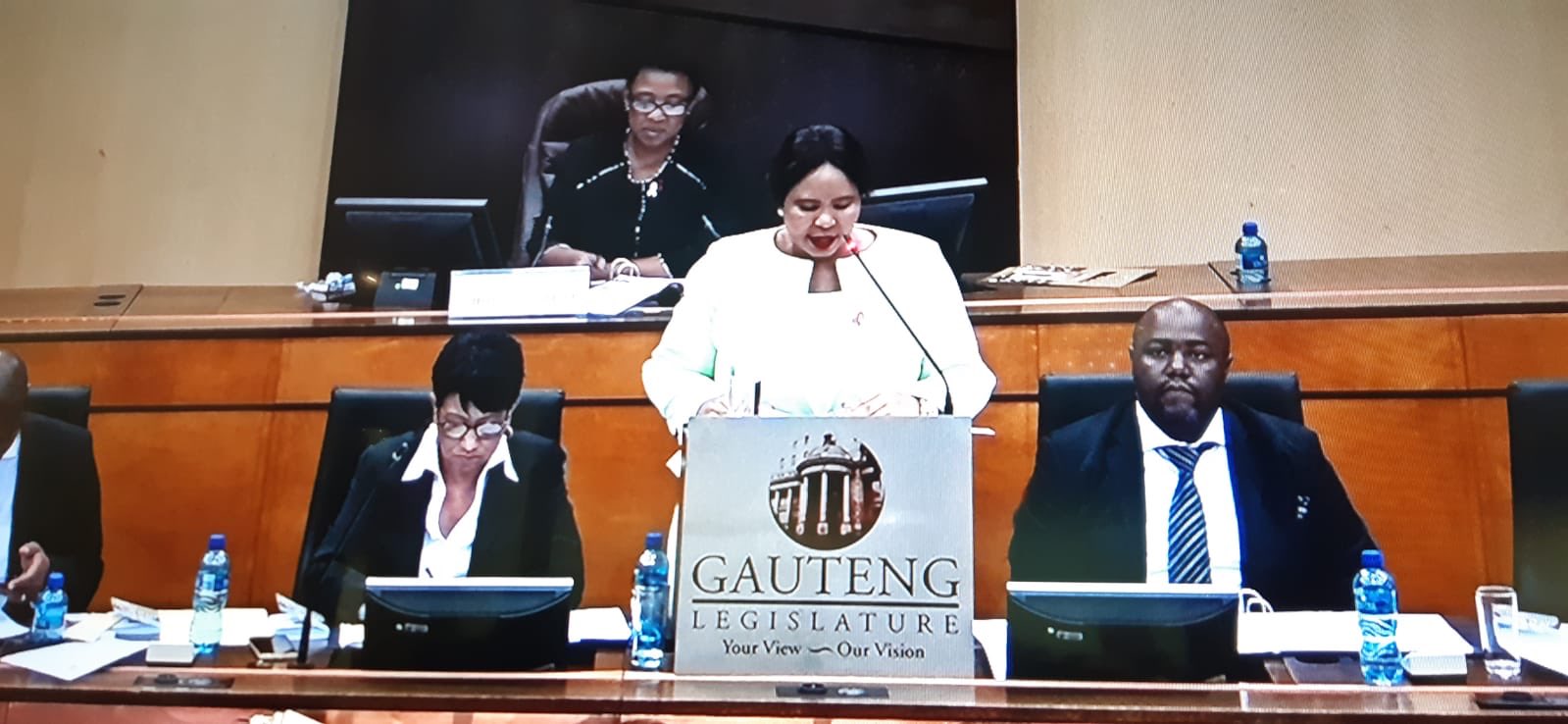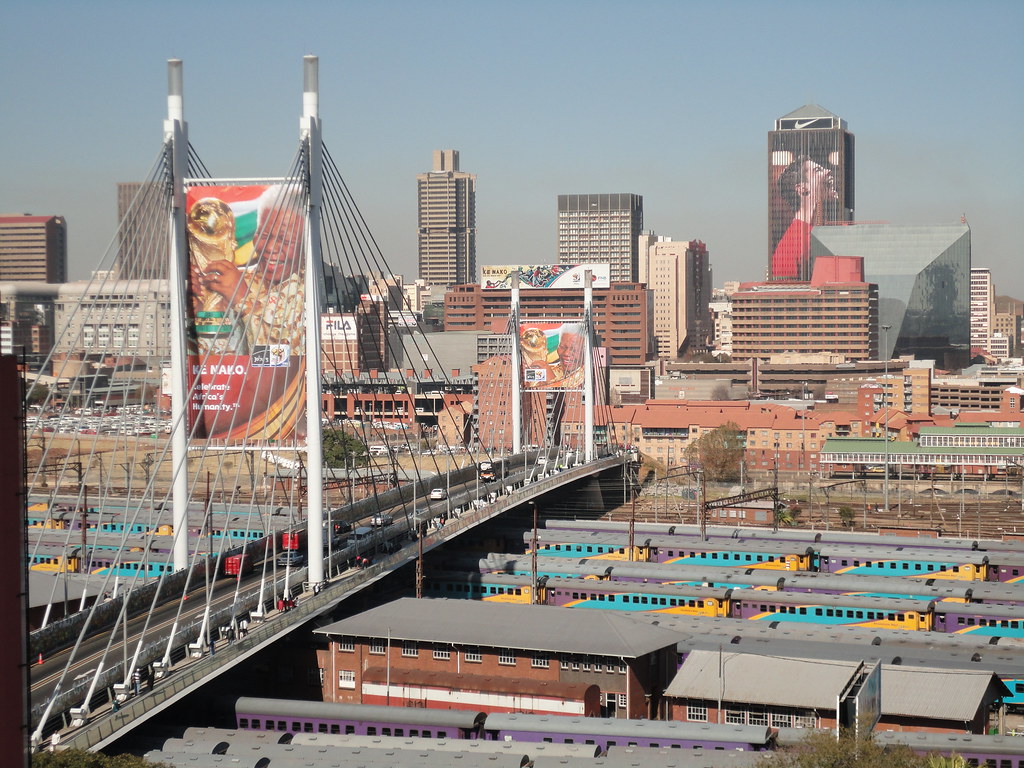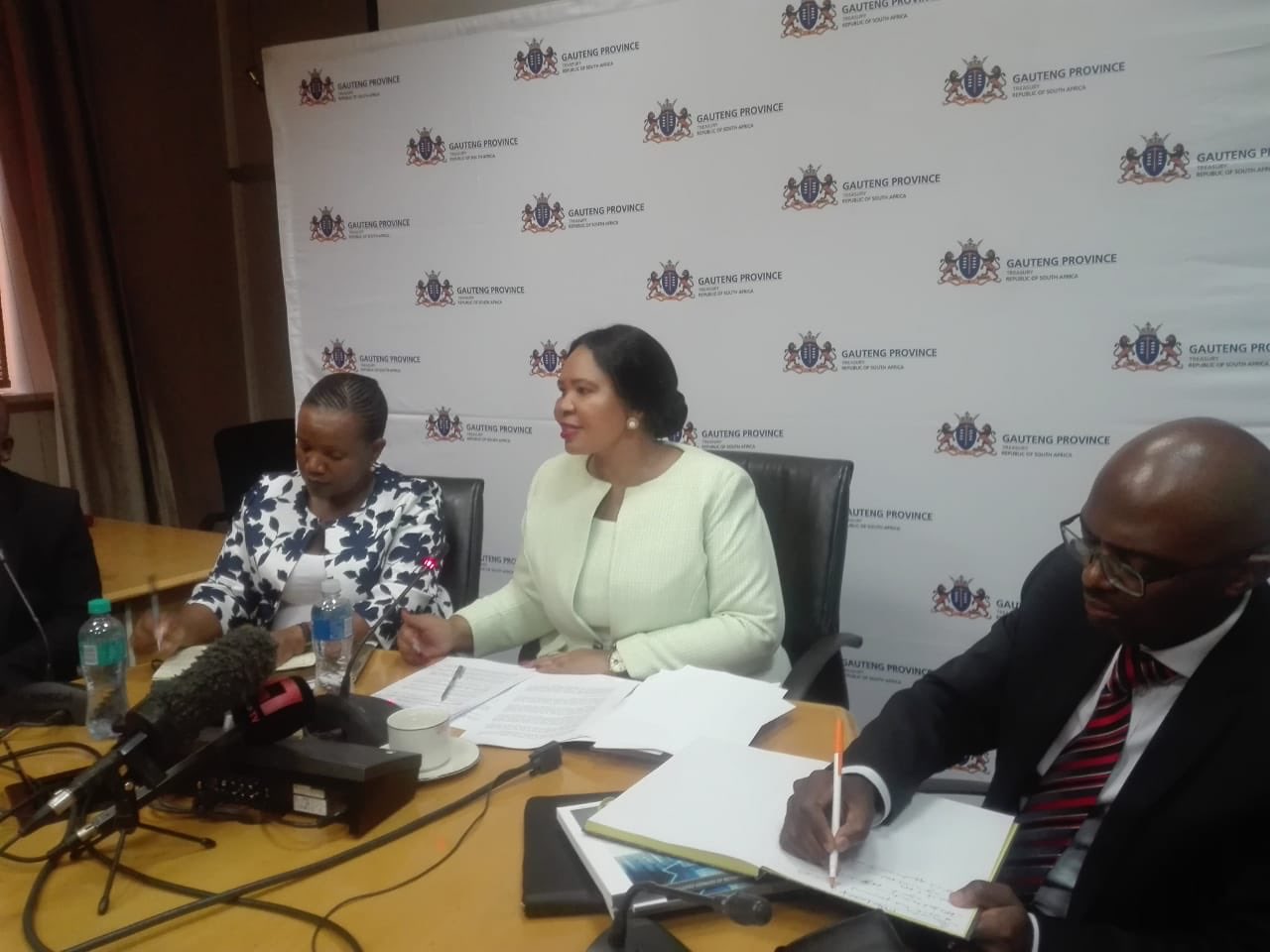Thalia Holmes
A new finance MEC, a new administration, and the roll-out of a new provincial economic plan.
The Gauteng Medium-term budget policy statement, presented on Tuesday by Finance MEC Nomantu Nkomo-Ralehoko, was all about taking stock and adjusting the strategic focus adopted by South Africa’s economic hub.
Nkomo-Ralehoko, speaking to the Gauteng legislature, noted that her maiden adjustment speech came at the end of the fifth administration and the dawn of the sixth.
With it, comes the province’s focus on resourcing a five-prong provincial plan: “Growing Gauteng Together, or the GGT plan.
“The GGT Plan aims at addressing the triple challenges of poverty, unemployment, and inequality that continue to prevail in the Gauteng and the whole country,” the introduction to the adjustment detail reads.

It will do so by addressing five key priorities, identified as:
• Economy, Jobs and Infrastructure;
• Education, Skills Revolution and Health;
• Integrated Human Settlements and Land Release;
• Safety, Social Cohesion and Food Security; and
• Building a Capable, Ethical and Developmental State
Of the several priorities highlighted by the plan, Tuesday’s budget adjustments reflected a short-term commitment specifically to infrastructure and health.
Infrastructure
“Honourable Members, there is general agreement that infrastructure is a fundamental enabler towards the delivery of services,” said Nkomo-Ralehoko.
And yet, “25 years into our democracy, we still face major challenges in ensuring that infrastructure projects are implemented in such a manner that provides value for money, achieves the best results from the money spent and derives maximum benefit from the very scarce financial resources at our disposal,” she said.
The Gauteng province’s budget for infrastructure has been increased by almost R200 million to R11.55 billion for 2019/20. This is “mainly based on the performance of projects during the first two quarters.”

Nkomo-Ralehoko highlighted the need to improve contract performance across the board. “Too many of our projects are characterised by numerous cost and scope changes from the start of the construction processes due to poor planning and designs as well as poor contract management,” she said.
In fact, poor project planning and delivery meant that certain departments lost substantial portions of their budget in the interim.
The department of education relinquished almost R204 million in this medium term, mainly due to a “lack of readiness to implement projects,” she said.
In a budget environment as lean as the current one, the swelling of one budget almost always comes at the cost of another.
For example, the increased infrastructure allocation came from an allocation that was originally earmarked for the construction of community libraries by the Department of Sport, Arts, Culture and Recreation, according to budget detail.
Health
The Gauteng Department of Health was the biggest winner in the medium-term budget reallocation.
It was granted an additional R320.2 million “primarily for the planning and procurement of the Occupational Health and Safety, Repairs and Refurbishment maintenance programme and for projects that are currently at construction stage.”
The department also receives a total of almost R60-million towards the Health Revenue Incentive Scheme.
Other budget increases
Other departments that saw budget increases were as follows:
- Economic Development receives an additional amount of R33.4 million for the Gauteng Gambling Board business automation project
- Social Development receives R60.7 million, primarily to improve existing facilities.
- Roads and Transport receives an additional allocation of R91.4 million for the maintenance and repairs of existing roads in the province.
- Community Safety is allocated an additional R5.5 million in order to settle accruals and outstanding expenditure
- Department of Agriculture and Rural Development receives an additional R5.6 million for the implementation of a milling plant project.
Rollovers (where budget from the National Treasury were under-drawn previously and will now be spent) were also granted to several departments.
In most cases, these will go towards the payment of outstanding invoices to suppliers, or the development of infrastructure under that departmental mandate.
Keeping it lean; increasing self-reliance
The finance MEC was emphatic about cutting the fat and doing “more with less.”
Part of this was manifest in her commitment to keeping the public wage bill at a manageable level.

“One of the key deliverables of Gauteng Provincial Treasury is to contain the provincial wage bill at a maximum of 60% of the total budget of the province,” she said.
The MEC explained that the rationale for this is “to ensure that there is no crowding out of resources – once salaries have been paid, there needs to be money left for operational programmes,” she said.
She also set about managing expectations around department budgets for the upcoming year.
“We expect that the crafting of the 2020 MTEF budget will be informed by leaner baselines,” she said.
“Departments will be required to utilize or spend within existing allocations to reflect the extent to which they respond urgently to tackle widespread unemployment, poverty and pervasive inequality.”
In addition,Nkomo-Ralehoko highlighted the province’s need to increase its own revenue in the coming years, due to the “impact of lower revenue projections and government’s policy of fiscal consolidation.”
Over the current medium-term period ending in 2020, the province expects to collect R21.2 billion in own revenue.
According to a breakdown provided in March, this represents roughly 5% of its overall budget, while 95% of Gauteng’s budget comes from the National Treasury, including the equitable share portion and conditional grants.
Former finance MEC Barbara Creecy said in her March budget speech: “In 2014 we took a conscious decision to increase provincial revenue. Together with our sister departments we set out to eliminate loopholes in collection mechanisms and promote operational efficiency. Every year during the five-year term, we surpassed our annual revenue targets.”
The expected R21.2 billion “is the highest amount raised by any provincial government and goes a long way to explaining why we have managed to keep the province’s finances afloat.”
Despite South Africa’s current lacklustre investment prospects, investments into Gauteng have been boosted to the tune of about R10 billion over the past five years.

A total of R6.9 billion of these were foreign direct investments and the balance were domestic direct investments, said the MEC.
As Nkomo-Ralehoko takes the reins, she is in a uniquely influential position to steer the finances of the country major economic hub.
The ‘place of gold’ is home to 15.2-million people, almost 26% of the country’s population.
Apart from being the seventh-largest economy in Africa, Gauteng is also the “economic and industrial hub of South Africa, accounting for 35.1% of the country’s GDP,” the MEC noted.
As the finance leadership straddles the unique challenges and opportunities presented by this province, all eyes will now be set on how the new plan is implemented in its entirety in the fast-approaching first quarter of next year.
Read all about Gauteng MTBPS here:

